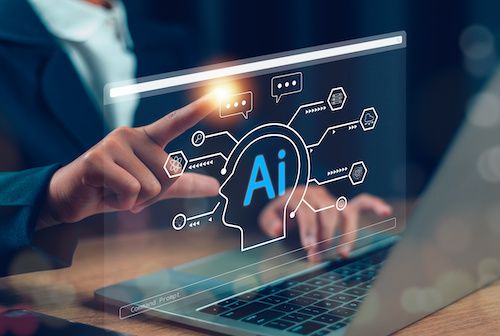Can students use AI tools for assignments now? Here’s what you need to know

Artificial intelligence has become an integral part of modern education, with students in Ghana and worldwide increasingly relying on tools like ChatGPT, Gemini, and Grammarly for academic support.
These technologies offer instant help with research, writing, and problem-solving, making them attractive resources for learners.
However, their growing use has sparked debates about academic integrity.
While AI can be a valuable study aid, its misuse may cross ethical boundaries.
Bullgod declares himself a “true man of God” after accurately predicting King Promise’s TGMA win — now says Black Sherif is next, while slamming pundits who doubted him.
The key question is not whether students should use AI but rather how they can use it responsibly to enhance learning without compromising originality.
Appropriate uses of AI for assignments

When used correctly, AI can function as a powerful educational assistant rather than a shortcut.
MUST READ: 10 African words with deep meanings
Many progressive institutions now encourage responsible AI use for tasks such as brainstorming essay topics, simplifying complex concepts, or improving writing structure.
For instance, a student struggling with writer’s block might use AI to generate initial ideas before developing their own arguments.
Similarly, AI-powered grammar checkers can help non-native English speakers refine their academic writing while preserving their unique voice.
These applications demonstrate how AI can support learning without replacing critical thinking and effort.
When AI use becomes problematic

Despite its benefits, AI poses risks when students rely on it excessively.
Submitting fully AI-generated work without proper engagement or attribution constitutes plagiarism, which most academic institutions strictly prohibit.
READ ALSO: 7 powerful reasons every man should eat okro for better health and performance
Additionally, over-dependence on AI may hinder the development of essential skills such as analytical reasoning and creative problem-solving.
Some universities have already implemented AI-detection software to identify machine-generated submissions, and students found violating academic policies face serious consequences, including failing grades or disciplinary action.
Navigating institutional policies

Academic institutions worldwide are adopting varied stances on AI use, and Ghanaian schools are no exception.
Some universities permit AI as a supplementary tool with proper citation, while others ban it entirely for assessed work.
Students must familiarise themselves with their institution’s specific guidelines to avoid unintended violations.
When in doubt, consulting professors or academic advisors can provide clarity on acceptable AI usage.
Transparency is crucial—if an assignment incorporates AI assistance, students should acknowledge it unless explicitly prohibited.
Best practices for ethical AI use
To maximise AI’s benefits while maintaining academic integrity, students should adopt responsible usage habits.
Treating AI as a brainstorming partner or editing assistant—rather than a content generator—ensures that original thought remains central to their work.
Cross-verifying AI-generated information with credible sources prevents the submission of inaccurate or fabricated content.
Most importantly, students should view AI as a means to deepen understanding rather than bypass learning.
READ MORE: ChatGPT beats Instagram, TikTok as most downloaded app in March 2025
By striking this balance, they can harness AI’s potential without compromising their educational growth.
The future of AI in learning
As AI continues to evolve, educational approaches must adapt accordingly.
Forward-thinking institutions are beginning to integrate AI literacy into curricula, teaching students how to leverage these tools ethically and effectively.
This shift mirrors past adaptations to technological advancements, such as the introduction of calculators in mathematics or the internet in research.
The ultimate goal remains unchanged: fostering critical thinking, creativity, and genuine knowledge acquisition.
AI, when used wisely, can support this mission rather than undermine it.
AI presents both opportunities and challenges for modern education.
Ghanaian students, like their global counterparts, stand to benefit from these tools, provided they use them as supplements rather than substitutes for learning.
By adhering to ethical guidelines and institutional policies, students can enhance their academic performance while developing the independent thinking skills that true education aims to cultivate.
As the educational landscape continues to transform, responsible AI use will be key to achieving success without sacrificing integrity.







